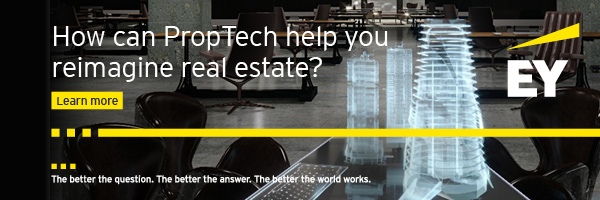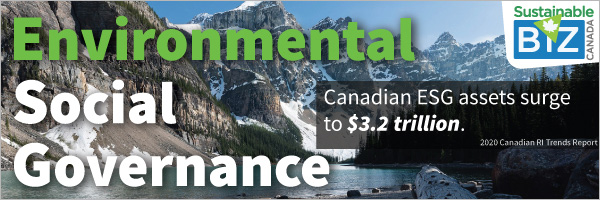Recent Articles
Brookfield’s 224 office, retail properties receive WELL rating
Brookfield’s office, retail properties receive WELL rating
Office and retail portfolios developed and operated by Brookfield Properties have received International WELL Building Institute’s coveted Health-Safety Rating. With nearly 100 office locations encompassing more than 75 million square feet, Brookfield’s office portfolio is now the largest to achieve the rating.
Parity, Ecobee team up to address rising energy costs
Parity Inc., and Ecobee are collaborating to help multi-residential buildings address rising heat and cooling costs. With Ecobee’s smart thermostat partnered with Parity’s artificial intelligence building automation system, the Toronto-based companies will be using data to address energy efficiency costs.
Nexii to construct new Vancouver Island facility
Green construction technology company Nexii Building Solutions will open a new manufacturing plant on Vancouver Island to accelerate the region’s transition toward sustainable building products.
Entrepreneurs say environment is their responsibility
A study conducted by the Business Development Bank of Canada (BDC) has revealed 82 per cent of Canadian entrepreneurs are taking steps to reduce the environmental impact of their activities.
Green transition could displace Canada’s energy workers
• Globe and Mail • Toronto Star
Three-quarters of the Canadians employed in oil and gas could lose their jobs as the country pursues aggressive climate targets, according to a new report that warns governments must develop worker transition plans now to prevent disastrous consequences.
BC’s largest Indigenous wind energy project completed
Saulteau First Nations (SFN) and Natural Forces have completed and commissioned a new $45-million, 15MW wind project located south of Chetwynd, B.C. It is now the largest majority-owned Indigenous green energy project in the province powering 5,800 household equivalents.
Long-haul trucking pursues emission reductions
Freight trucks are a growing source of greenhouse gas (GHG) emissions. Since 1990, GHG emissions from freight trucks have doubled. Long-haul trips and the “last-mile” deliveries currently represent 37 per cent of Canada’s transportation-related GHG emissions.
GM, Volvo accelerate into EV curve
A KPMG study reported 68 per cent of Canadians planning to purchase a new vehicle by 2025 are likely to buy an EV, with 79 per cent aged 18 to 44 likely to buy an EV in the next five years and 58 per cent over 45.
Drone cameras identify energy efficiency projects
Drones equipped with infrared cameras can be used to create thermal maps that show where buildings or underground steam pipes are losing heat and costing organizations money, which can help identify energy efficiency projects.
CleanSpark CEO discusses residential microgrids
Zachary Bradford, CEO and president of CleanSpark, a technology company focused on microgrid software, seeing significant growth in the residential market, cited the need for both consumers and policymakers to understand that microgrids offer resiliency when the power goes out.
BrainBox AI, WattTime to reduce CRE CO2 emissions
• Business Wire • Sustainable Biz Canada
BrainBox AI, a pioneering leader in autonomous building technology, announced a partnership with WattTime, an environmental tech non-profit that empowers people and organizations to slash emissions and use cleaner energy driving CO2 reductions in CRE across North America.
AI, climate change and diversity opportunities: BMO
BMO Financial Group’s chief executive, Darryl White, says the COVID-19 pandemic has pushed BMO to get more serious about artificial intelligence, diversity and climate change. BMO spent the first year of the pandemic focused on helping customers facing unprecedented challenges.
RBC report shows women leading in ESG investing
A recent survey by RBC Wealth Management shows that responsible investing, namely environmental, social and governance (ESG), is gaining traction. Women are leading the charge for ESG investing and are more likely to have a positive outlook toward this trend.
Indigo commits to net-zero emissions by 2035
• Canada Newswire • Write The Future – Indigo Sustainability Initiative
Indigo, Canada’s leading book and lifestyle retailer, has a commitment to net-zero emissions by 2035. In 2020, Indigo kicked off “Write The Future – Indigo Sustainability Initiative” with a full assessment of its operational carbon footprint and a number of immediately implementable actions.
Climate-change adaptation missing from retrofit plan
• Globe and Mail • Financial Post
Promised grants of up to $5,000 per household, at a total cost of $2.6-billion over seven years, were billed as an opportunity for homeowners to make energy-efficiency improvements through investments that would help fight climate change by reducing greenhouse gas emissions.
Treehugger guide to sustainable certifications
It’s a good thing there are so many sustainability labels in the world, although it may feel confusing at first. Certifications are proof that a lot of people care about how workers are treated and how products are made.
Nauticol on track to produce first net-zero methanol
When the COVID-19 pandemic hit, methanol plant proponent Nauticol Energy went back to the drawing board to redesign its $2-billion petrochemical project in northwestern Alberta to align itself to the province’s new focus on reducing its carbon intensity.
Pipelines, as a source of greenhouse gas emissions
• GreenBiz
Is measuring the carbon produced at a power plant the best way to monitor emissions? A team of scientists recently took a different approach: the bottleneck method. Instead of considering pollution emitted only at the end-use, they considered all phases.
Houston considers microgrids after winter outages
In the wake of devastating Winter Storm Uri, which brought frigid temperatures to Texas, freezing power plants and natural gas equipment as electricity use soared, Houston is considering microgrids for critical infrastructure such as water treatment facilities.
Key things to know about U.S. EV infrastructure plan
• GreenBiz • American Jobs Plan
Within Joe Biden’s $2.25 trillion infrastructure plan — the American Jobs Plan — unveiled last week, a massive $174 billion investment is proposed “to win the EV market.” It’s a historic move that will have deep implications for the emerging U.S. EV industry.
Dream uses $120M green loan to upgrade GTA complex
Dream Impact Trust (MPCT-UN-T) is putting a $120-million green loan from HSBC (HSBC-N) to work making significant mechanical and other improvements at its Sussex Centre office complex in Mississauga.
 Industry Events
Industry Events
-
Canada Green Building Council: Building Lasting Change 2024
Jun 05 2024
to Jun 06 2024
Toronto
-
Global Conference on Renewable Energy and Environmental Sustainability
Aug 16 2024
to Aug 18 2024
Vancouver, Canada











